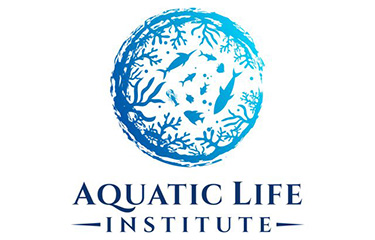The Aquatic Life Institute (ALI) has launched a publicly available benchmark tool to evaluate the aquatic animal welfare standards of global aquaculture certification schemes.
Until recently, individual animal welfare considerations have been excluded from global aquaculture certifications. The new aquaculture certification benchmark tool, according to ALI, analyzes current welfare requirements and highlights areas of opportunity for welfare improvements in each farming standard.
“This benchmark will prove to be a valuable tool to any company in the food sector during their seafood purchasing decision-making process. It will support them in making more-informed choices about certified products entering their supply chain, and allow the public to be better informed about practices associated with seafood production. The tool will also help certification schemes that are lagging behind in aquatic animal welfare, by shedding light on improvements that will allow them to stay relevant,” Aquatic Animal Alliance Director Catalina Lopez said.
ALI evaluated six of the most prominent certifications in the aquaculture industry including the Global Animal Partnership (GAP), RSPCA-Assured, Naturland, Friend of the Sea, Global G.A.P., and Best Aquaculture Practices (BAP). These certifications focus on aspects such as environmental impact or food safety, and are used by the aquaculture industry to verify those practices are being carried out at farms.
Consumer attitudes tilting toward greater concern about animal welfare and environmental sustainability are resulting in more instances of poor welfare conditions being uncovered on farms around the world, including certified farms, according to ALI. The group said it developed its aquaculture certification benchmark tool to combat misleading claims about the treatment or conditions in which the farmed animals are being born, raised, and harvested.
The tool analyzes each farming standard for current requirements and opportunities for improvement for each farming standard, ALI said. Current areas of evaluation include environmental enrichment, space requirements and stocking density, stunning and slaughter, feeding practices, and water quality. The tool will be updated annually, with future editions including additional certification schemes and measuring additional areas of concern.
ALI said it engaged the certification bodies included in its tool for over two years to ensure standard language is updated to include animal welfare. Overall, the report recognized the Global Animal Partnership Atlantic salmon welfare standard to be the most welfare-comprehensive standard currently in existence. The standard states certified facilities must include enrichments at all life-stages, must adhere to strict stocking-density limits, monitor water quality on a daily basis, comply with adequate stunning and slaughter requirements, and must not use insects in farmed fish feed. Insects in feed have the potential for concern due to unknown animal welfare consequences and negative environmental impacts throughout the production cycle, ALI said.







